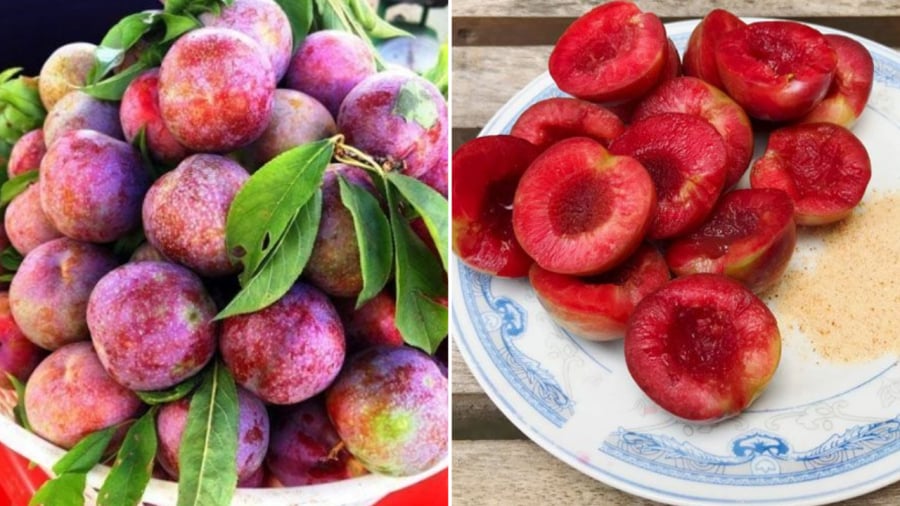Summer is the season for ripe, juicy plums. These tart and crunchy fruits are a favorite for many. While plums offer nutritional benefits, they should be consumed in moderation to avoid any adverse effects on your health.
Avoid Overeating Plums
The plum referred to here is the Northern plum, distinct from the Southern plum or “king plum.” Plum season typically spans from April to August annually, with various cultivars available such as rice plum, honey plum, iron plum, triple-flowered plum, and Tavan plum. Generally, all types of plums boast high nutritional value with minimal differences. Plums are typically rich in fiber, vitamins A and C, and antioxidants. These nutrients aid digestion, slow down aging, and boost immunity.
Despite their nutritional benefits, plums should not be consumed in excess. Overeating plums can lead to internal heat, mouth ulcers, and acne breakouts. Individuals with a hot constitution are particularly susceptible to these issues.
Additionally, excessive plum consumption may impact your stomach, causing acid reflux and gut irritation, especially when consumed on an empty stomach.

Excessive Plum Consumption May Increase the Risk of Kidney Stones
Plums contain high levels of oxalate. When combined with calcium, oxalate forms precipitates that reduce calcium absorption in the intestines. Over time, this can lead to calcium deposits in the kidneys and urinary tract, forming kidney stones.
Individuals with a history of kidney stones or those at high risk for developing them should refrain from consuming large quantities of plums to prevent exacerbating their condition.
How Many Plums Should You Eat Daily?
Plums are delicious and packed with nutrients, but it’s important not to overindulge. According to VTC News, to avoid overwhelming your digestive and renal systems while still reaping the benefits of plums, herbalist Bui Dac Sang recommends limiting your intake to 5-7 plums per day.
Additionally, individuals with stomach, liver, or kidney ailments should exercise moderation when it comes to plum consumption.
Pregnant women can eat plums but should do so in moderation to prevent issues like internal heat, mouth ulcers, and acne breakouts.
It’s also advisable to avoid pairing plums with excessive salt and spicy chili peppers. While this combination may enhance the flavor, it can irritate the stomach and increase the risk of digestive issues. High salt intake is also detrimental to blood pressure and cardiovascular health.
Selecting Ripe Plums and Ensuring Proper Hygiene
When purchasing plums, opt for those with a round, uniform shape and intact skin free from scratches or bruises. A white powdery coating on the surface is normal and indicates the plum’s natural protective mechanism. Plums with a glossy skin and a thin layer of powder are freshly harvested and of superior quality.
If you prefer crisp, sweet-tart plums, choose ones with a color transitioning from green to red. For softer, fully ripe plums, select those that are entirely red. However, avoid overly soft plums to prevent consuming bruised or fermented fruits.
Refrain from buying plums that are bruised, scratched, infested with insects, or bearing fingernail marks.
Always wash plums thoroughly before consumption. Soak them in a dilute salt solution for about 30 minutes to eliminate surface contaminants. Rinsing plums under running water helps dislodge dirt and bacteria.
































